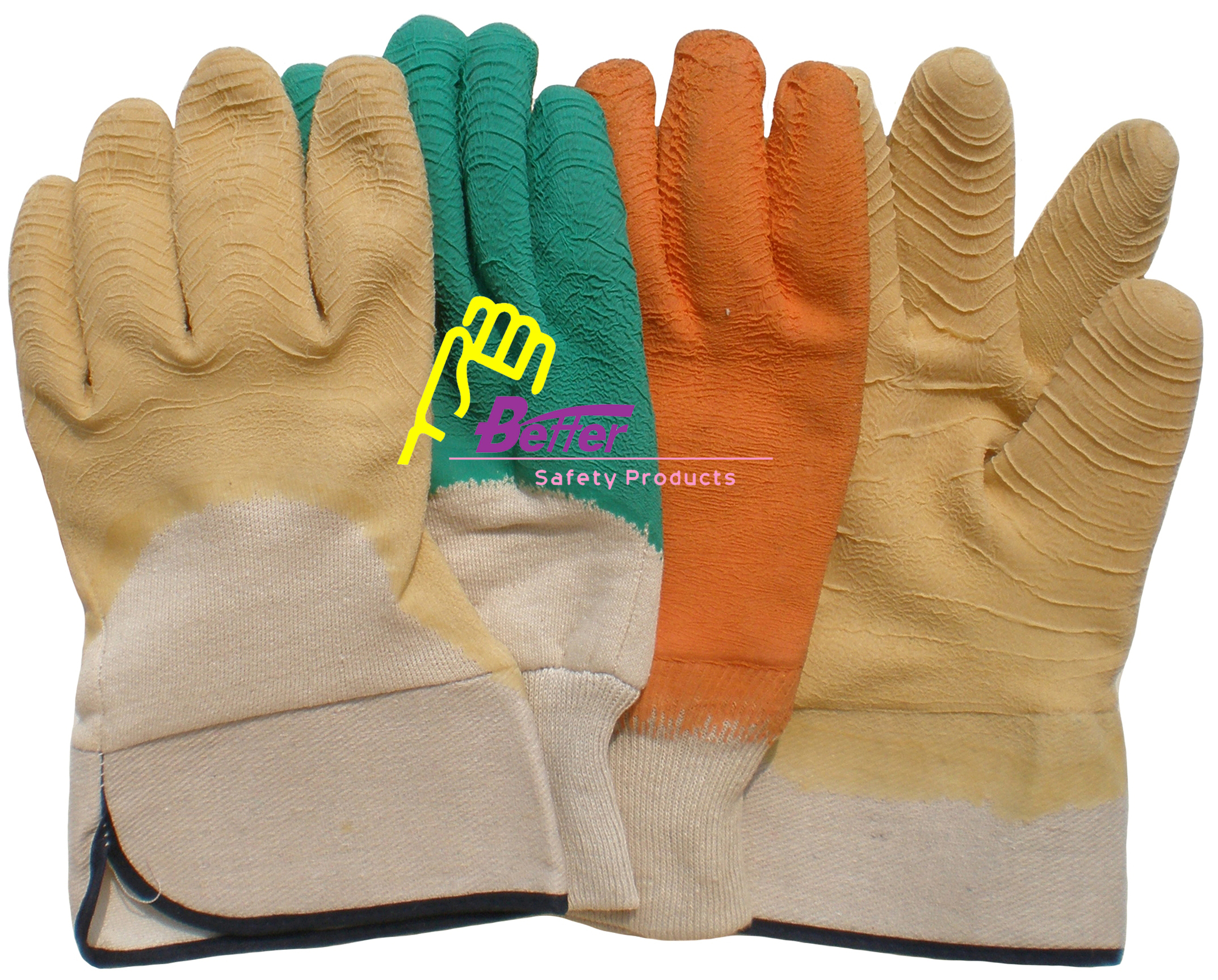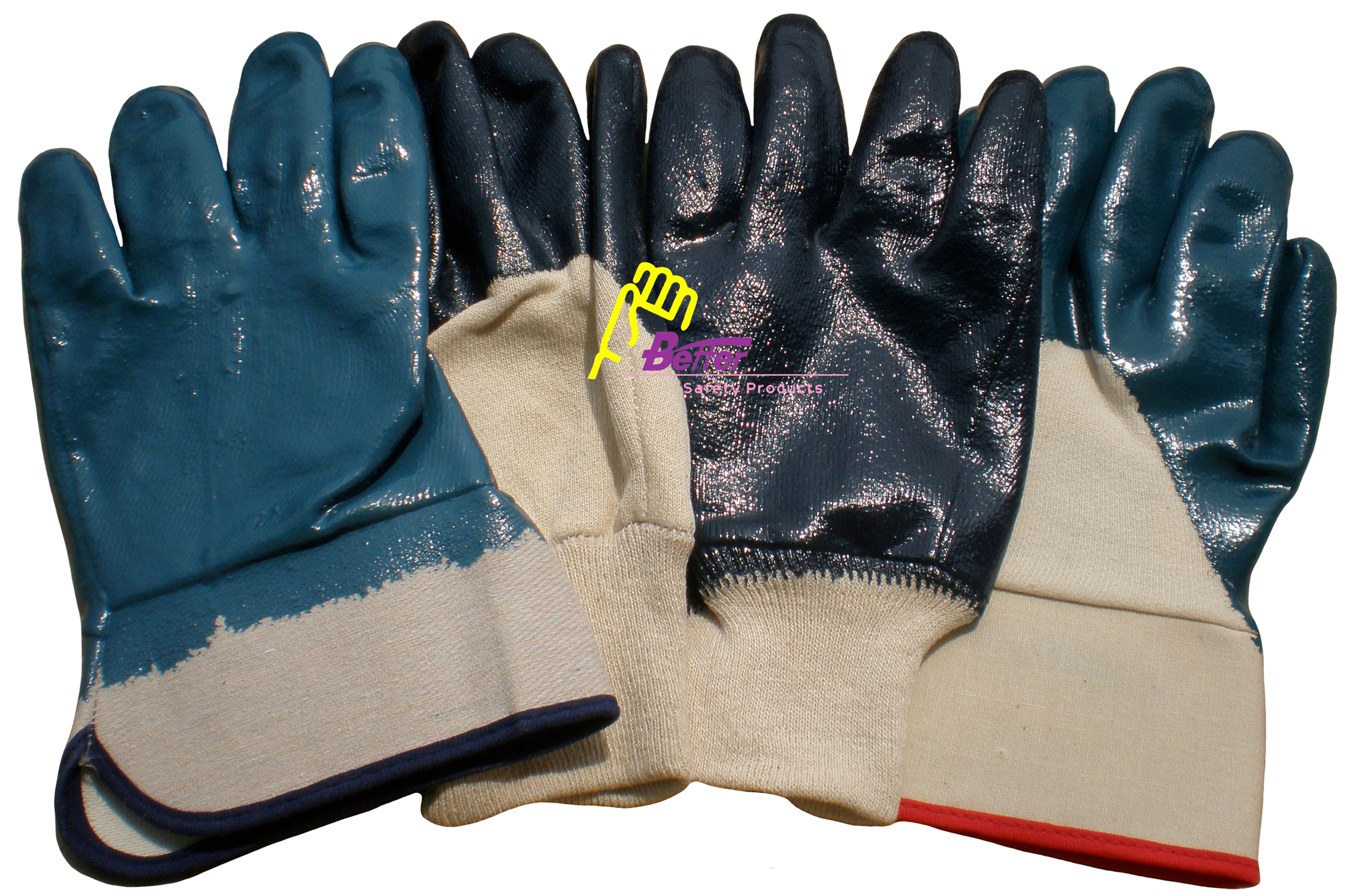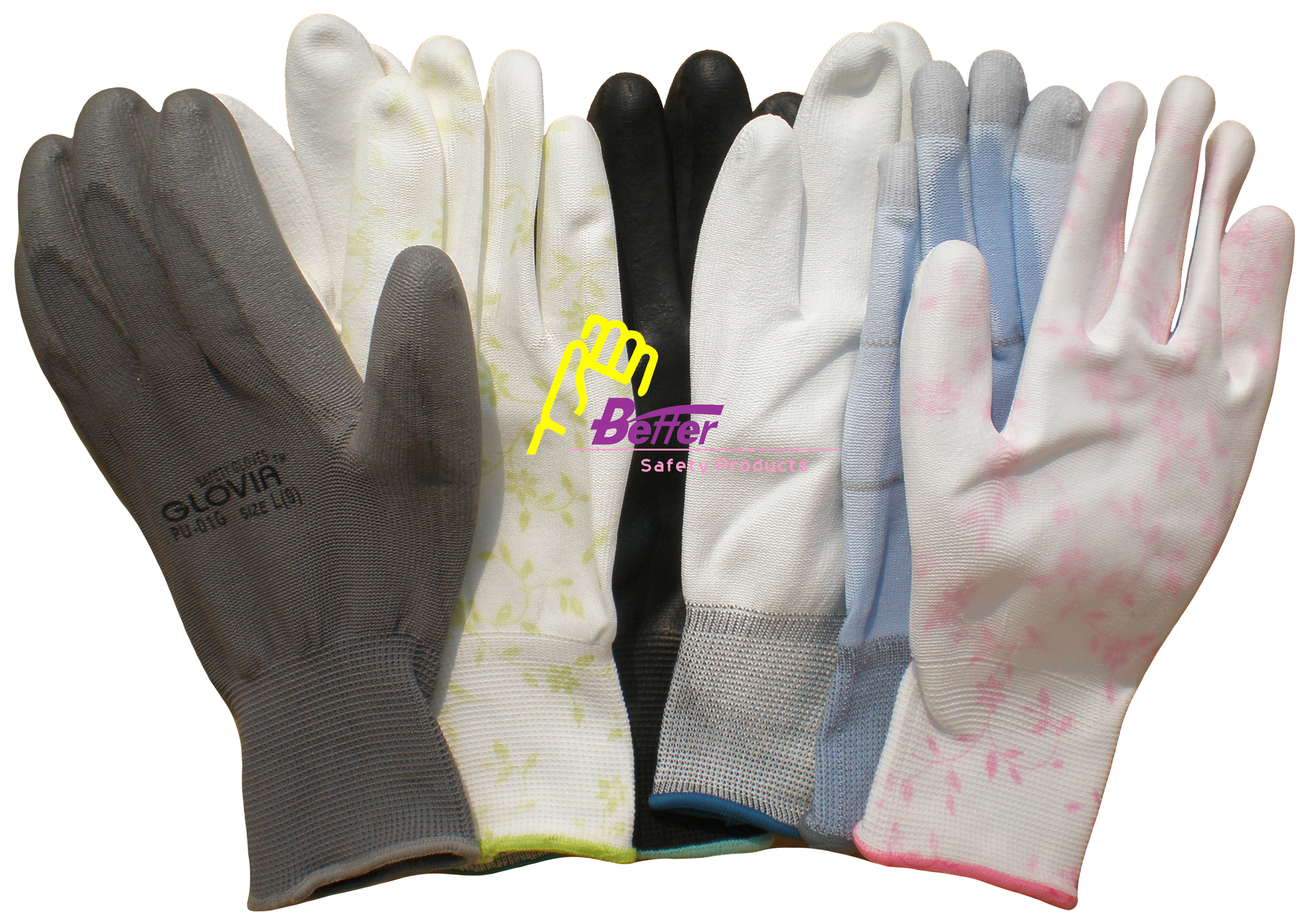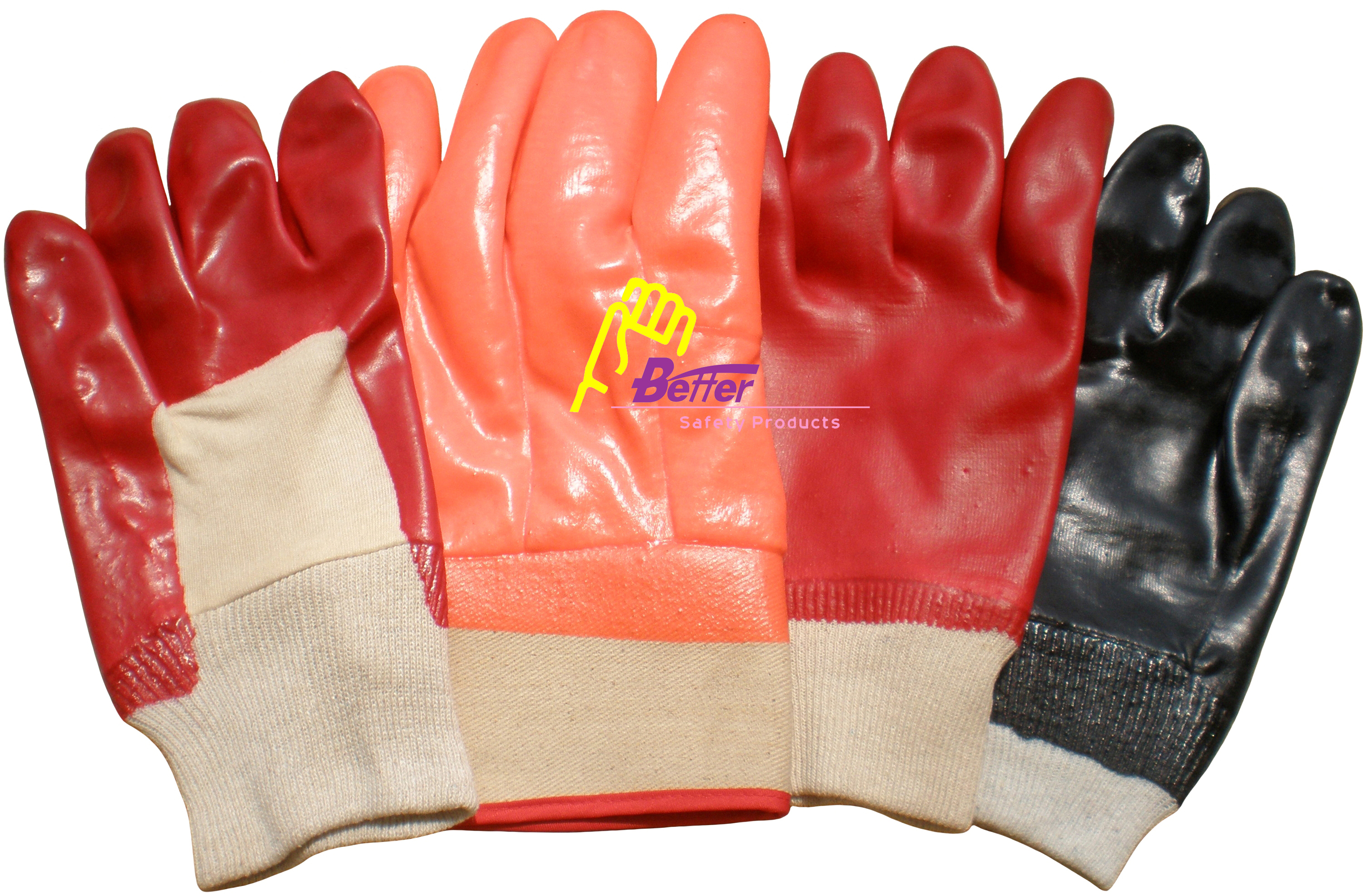Coating materials include natural rubber or latex, synthetic rubber, and plastics.
1. Natural Rubber
2. Synthetic Rubber
Chloroprene (Neoprene) / Nitrile rubber / Butyl and Viton®-butyl
3. Plastics
Polyurethane / Polyvinyl chloride
 Natural Rubber also known as Latex is found in nature in over 200 plants, but its most common source is the Hevea Brasiliensis tree. Natural rubber dispersed in water is known as latex. Natural rubber has a very high elasticity compared to other glove materials, excellent cut and tear resistance, and outstanding grip and temperature resistance. While it is flexible and durable over a wide range of temperature, -18 to 149°C (0 to 300°F), it has poor flame resistance. In general, natural rubber withstands water, alcohols, and some ketones, but has poor chemical resistance against most hydrocarbon and organic solvents. Natural rubber can cause an allergic reaction in some people. Natural Rubber also known as Latex is found in nature in over 200 plants, but its most common source is the Hevea Brasiliensis tree. Natural rubber dispersed in water is known as latex. Natural rubber has a very high elasticity compared to other glove materials, excellent cut and tear resistance, and outstanding grip and temperature resistance. While it is flexible and durable over a wide range of temperature, -18 to 149°C (0 to 300°F), it has poor flame resistance. In general, natural rubber withstands water, alcohols, and some ketones, but has poor chemical resistance against most hydrocarbon and organic solvents. Natural rubber can cause an allergic reaction in some people.

Nitrile Rubber is a co-polymer of acrylonitrile and butadiene. Nitrile rubber offers excellent physical hazards resistance to punctures, cuts, snags, and abrasion. While it is not flame-resistant, it demonstrates functional performance in temperatures ranging from -4 to 149°C (25 to 300°F). Nitrile rubber has considerable resistance to oils, fuels, and certain organic solvents. It is commonly used as a coating for dipped gloves and also in the construction of laminated and impregnated, cut and sewn gloves.

Polyurethane (PU) is a thermoplastic polymer of urethane. Polyurethane provides good abrasion resistance and tensile strength. Polyurethane offers good resistance to oils, some organic solvents, oxidation and ozone. It has poor resistance to hot water and is not recommended for use above 79°C (175°F). Polyurethane has a very low particulate shed, thus making it a good choice for cleanroom gloves. Polyurethane is also used in some specialty application styles and as a waterproof liner for gloves.

Polyvinyl Chloride (PVC) is a synthetic thermoplastic polymer of vinyl chloride. PVC offers good abrasion resistance but may be susceptible to punctures, cuts, and snags. While it is flexible, it does not provide the tactile sensitivity associated with most rubber products. PVC starts to soften at approximately 82°C (180°F). PVC is effective against water and most aqueous solutions, detergents, and diluted bases and acids. It only has limited chemical resistance to organic solvents. PVC is one of the more common coatings for coated work gloves.
|

